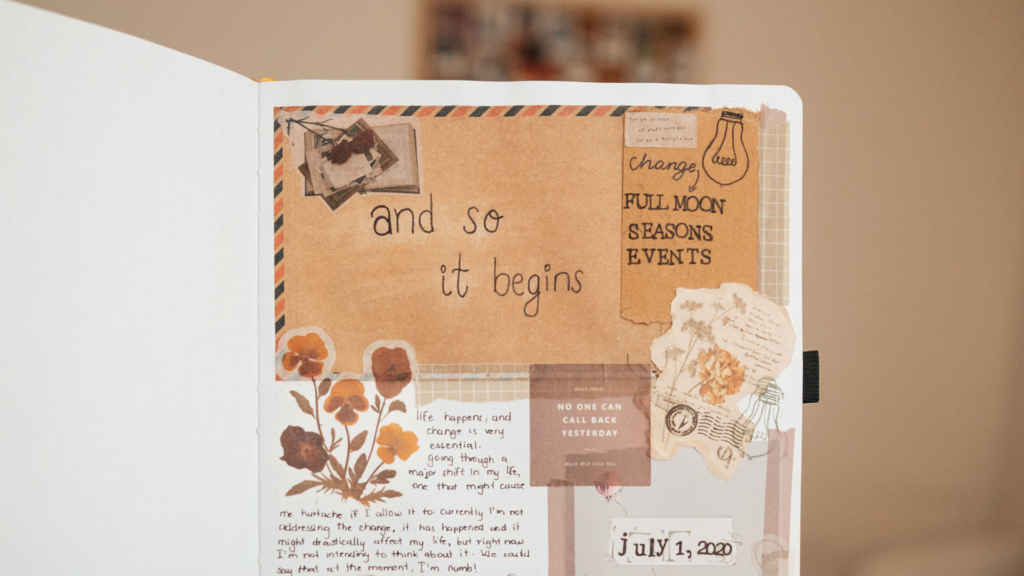
This post is a little note to my past self (and any other young adults) about 20 things I wish I’d known in my 20s.
Life is hard.
Particularly when you become an adult because you have the reins for the first time in your life, and there’s no one around to tell you “no”.
Well, except the law, I guess, but…
Other than that, you get to decide on the kind of person you want to be and the pathways to take you there.
It can be a little scary, and you may find yourself begging more often than not for someone to drop a cheatsheet in your lap.
Alas, the best we can hope for is to learn from each others’ experiences.
So, while I can’t turn back the clock on myself, I can at least share some of the advice I’ve gathered thus far.
Here are 20 things I wish I’d known in my 20s.
This post contains affiliate links, meaning that if you choose to click through and make a purchase, I will receive a small commission at no additional cost to you.
1. Take Your Health Seriously
When we’re young, it is easy not to give much thought to our health.
There is this misconception that you worry about your well-being later on in life; however, you can start feeling the signs of aging as early as your 20s.
I definitely began to realize I wasn’t as quick or mobile as I used to be, and I was catching more colds than ever before.
You also start losing collagen around this time. So, my advice is to take care of your body now.
Exercise, practice good nutrition, and develop your skincare routine. The works.
2. Embrace Change
This piece of advice may sound cliché because, of course, life changes.
We see it in movies and books, but still, I was woefully unprepared for the direction my life could take.
I’ve changed careers, chopped all of my hair off, started practicing meditation and yoga…
These are things I would have never considered once upon a time. I have become a different person, but that’s actually a good thing.
Your life is going to change and perhaps go in directions you didn’t plan for. I suggest, instead of resisting, go with it.
You might find that though you veered off the beaten path, you ended up exactly where you were supposed to be.
3. Apologize, Even When You’re Not Wrong
There is nothing worse than holding a grudge. It doesn’t bring absolution, and it makes you feel awful inside, disturbing your inner harmony.
I’ve learned that even when I know I’m right, apologizing first is the best icebreaker.
Besides, much of the time, you’ll discover the other person was feeling just as crummy as you were and may offer an apology of their own in return.
4. Take Advantage of Your Resources
One thing I did not do enough as a young adult was take advantage of my resources.
When I say resources, I mean anything that helps you get to where you want to go.
From the people you know to the organizations you’re a part of. If you are a college student, utilize every benefit your tuition can get you.
Form connections and build relationships.
Consider also, the access you’re granted as a college student, particularly when it comes to technology and information, which will likely be unavailable to you outside of school.
At least not without a hefty price attached. Use everything you can.
Your job, internship, family members, and even your geographical location can work in your favor.
5. Make Friends
Maintaining friendships as an adult can be more challenging than it was in grade school.
People grow up, get busy, and may even move away, making it all too easy to lose track of your social network.
You can always make new friends, but adults tend to be less chatty with someone new than children.
Still, this is no reason to give up because socializing is important for your overall well-being.
With a little persistence, you can build friendships just about anywhere—at the grocery store, yoga class, gym, etc.
Of course, you could try social media, but it may be hard to have in-person interactions, which I fully recommend.
6. Take a Break
Life moves fast. One second you’re hanging your diploma on the wall and the next you’re pulling overtime at your 9-to-5.
I certainly was not prepared for how little time I had to do anything after college.
Perhaps I’m wrong, but aside from retirement, I don’t think there is any other time in your life when you have as much freedom as in your twenties.
So, use your time well. Take a long break from your career path and just… have fun. Learn about yourself, travel, or do something adventurous.
That’s not to say your good days will be behind you, but this may be one of the only times in your life where you can truly live carefree without someone thinking you’re having a mid-life crisis.
7. Read More
Reading is about more than just acquiring knowledge.
Although it is great for that as well, reading also helps develop empathy and ignite creativity.
It shapes your morality, perception, and critical thinking. Unfortunately, many people stop reading after school, which can contribute to the spread of misinformation.
So, try to read as much as you can.
8. Set a Work-Life Balance
In college, I worked, went to school, and did my homework in that order.
After graduation, I threw myself into the workforce and largely neglected my social life. I didn’t realize you could experience burnout.
However, it is a very real thing that can take years to overcome. Therefore, don’t be too hard on yourself. You’ll get to where you’re going.
Remember, we need time to relax and play just as much as we need to earn a living. Get into the habit of setting boundaries for your work and home life.
9. Seek Multiple Sources of Income
One thing you quickly learn as an adult is that surviving on one source of income is challenging nowadays.
While this may not have been the case years ago, it’s the reality for most adults today.
In fact, one poll found that almost 80% of Americans are living from paycheck to paycheck.
When I suggest creating multiple sources of income, I don’t necessarily mean working more than one physical job.
This might suit some people, but it could lead to exhaustion and discontent.
Instead, find a hobby or skill set that can earn you extra money.
Start small; your income stream doesn’t need to produce a lot of money right away, or even at all.
Rather, it should generate passive income without distracting you from your main work.
It could eventually produce enough income to replace your regular 9-to-5. However, unless it’s substantial, I still recommend having multiple income streams.
Life can be unpredictable, and the last thing you want is to suddenly lose your job and worry about making rent or putting food on the table.
10. Save for Rainy Days
Like many who worked a first job, I didn’t make a lot of money, but I saved almost every cent.
Then the day came when my car broke down, and I had to spend my entire savings on repairs.
The moral of this story is to store up money.
This doesn’t mean hoarding your wealth but being responsible.
Try to put away around 3 to 6 months of savings for a rainy day or a potentially life-altering change. This can save you from starvation or an eviction notice.
You may never need that money, but you should always have it ready.
11. Give Yourself Some Responsibility
Giving yourself some kind of obligation early on is incredibly beneficial.
Not only will you discover a lot about yourself, but it will also instill a sense of responsibility that prepares you for adulthood.
This can be anything from paying bills to taking care of a sibling, a car, a pet… heck, even a plant.
The idea is to hold yourself accountable to something. Do this early and decide if you’re ready to take on more or less responsibility.
12. Set Goals
We all want to achieve things in life, but not everyone has a clear idea of how to do it.
The best advice I can give you is to make a plan for your life and set a series of goals. Break them down from big goals to smaller ones.
You’ll find that even the loftiest aspirations become more achievable when they start as tasks.
If you’re not a facts and figures kind of person and the idea of forming a detailed plan makes you anxious, try a different approach.
Maybe create a monthly or yearly vision board. That might be more fun anyway.
13. Make a Morning Routine
For the love of God, make a morning routine!
I don’t like routine. I’m not fond (at all) of living my life by a schedule, but somehow I seem to be the most productive when I follow some kind of guide.
The body also loves operating on repeat. Plus, it’s better for your overall health and well-being. So, build a morning routine and stick to it.
You’ll be surprised at how starting your day off right can lead to daily and ultimately lifetime success.
14. Enjoy Your Solitude
There’s nothing quite like solitude. Spending time alone with your thoughts, especially early in the morning or late at night, is one of the best ways to boost your mental health.
During this time, you can engage in activities like journaling, knitting, meditating, or practicing yoga.
The goal is to connect with yourself. Keep in mind, there’s a significant difference between being alone and feeling lonely.
We’re aiming for the former.
15. Pay Yourself First
I read a book once where the author talked about the idea of paying yourself first.
After every paycheck, they suggested putting aside 10% of your income just for you. This money is separate from bills and can be spent however you like.
I didn’t follow this advice right away, but it’s a solid tip that can help you feel more at ease with your finances and let you spend within your budget.
Understanding how to manage money is super important for young adults. Here are two books I think every young adult should read:
The Richest Man in Babylon-a practical guide to managing your finances.
The Money Book for the Young, Fabulous & Broke -covers the basics of personal finance in a way that’s easier to understand.
16. Force Yourself to Do What’s Hard
When you’re a kid, there are tons of things you just don’t want to do, like going to school. This doesn’t really change as you get older.
To find success in life, there will be times when you have to push yourself to do what’s hard or uncomfortable.
Many people talk about developing motivation, which is great to have. But motivation alone might not always be enough to reach your goals.
Sometimes, you’ll need to get up much earlier than you’d like or stay up a bit later.
You might have to go back to school, take community classes, or tackle tasks you just don’t want to do.
In the end, if you want success, it might require some sacrifices, and you have to be ready for that.
17. Be Bold
This might sound like obvious advice, but it took me years to learn.
Be bold about what you desire in every sense. If you want a raise or a specific position at work, ask for it.
Do you want to do something absolutely freaking crazy with a huge payoff?
DO IT.
What’s the worst that can happen? I’ve learned that being shy and “too polite” doesn’t get you very far.
18. Say What You Mean & Mean What You Say
I’m piggybacking off the last advice but bear with me.
Someone once said, “Be bold with your Yes’s and be bold with your No’s.”
As a young adult, I had to learn three things quickly: how to articulate my position, be firm about it, and not waver in my decision.
If your answer is no and you truly mean it, let that be the end of the conversation.
At the same time, don’t be afraid to say “yes” when you want something. Be vocal and decisive about what you want.
Another saying I use often is, “Straight talk makes for straight understanding,” so make sure you’re well understood.
19. Get Comfortable Being Clueless
One of the biggest surprises for me in my 20s was realizing that adults don’t know everything. Like…at all.
They’re just as unsure of themselves as children and are basically shooting in the dark.
But there is a benefit to knowing this. Don’t think you need to have everything figured out, certainly not by yourself.
Learn from others’ mistakes. Gather up knowledge, even from your own past experiences, and make the best decisions you can.
Don’t be put off by the fact that you’ve never done something before because everyone else feels the same.
20. Give Everyone Grace
This may be the most important piece of advice. I don’t know a single soul who has ever been right 100% of the time.
Give people the grace to be wrong, even when they don’t realize it. Everyone learns at their own pace, and some are more stubborn than others.
It can be frustrating when someone doesn’t see your point of view, especially when the truth is so obvious.
But remember, you’re going to be wrong and make mistakes too. That’s okay—it’s a natural part of the learning process.
Give people the grace you hope someone extends to you.
(P.S.- give yourself grace, too!)
What I Learned in Boating School Is…
I learned a lot in my 20s but most of all I learned to trust myself.
I’m not saying I should change my name to “the all-wise one” anytime soon, but…I am finally comfortable with not knowing everything.
And why would you want to? Bloopers are part of the fun of life.
With that said, keep on making mistakes and memories so we can all learn from your experiences, too!







Leave a Reply